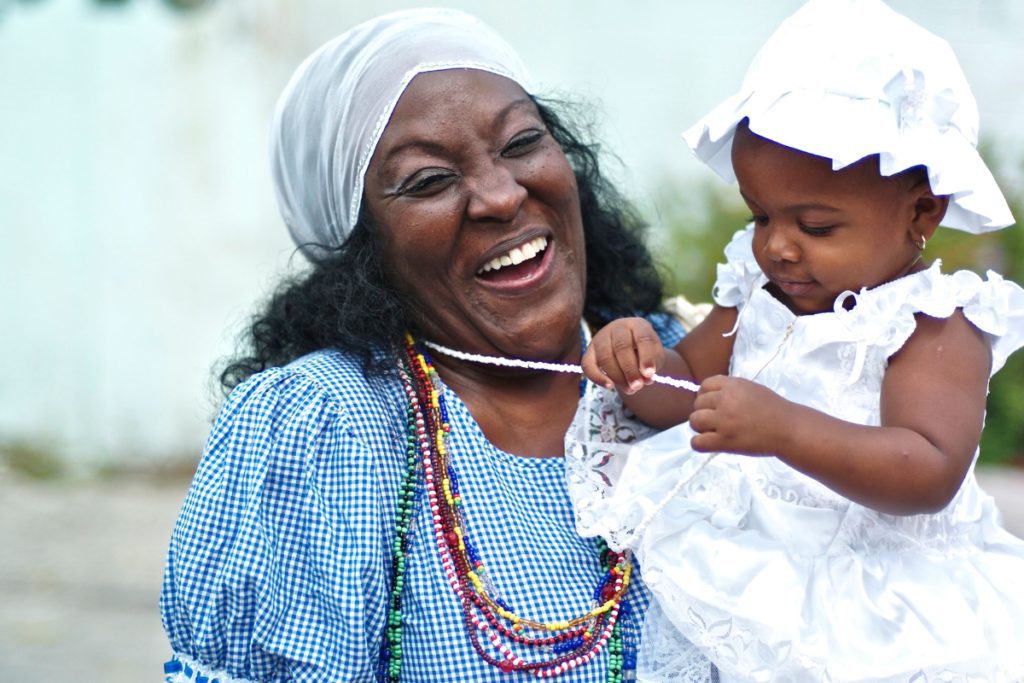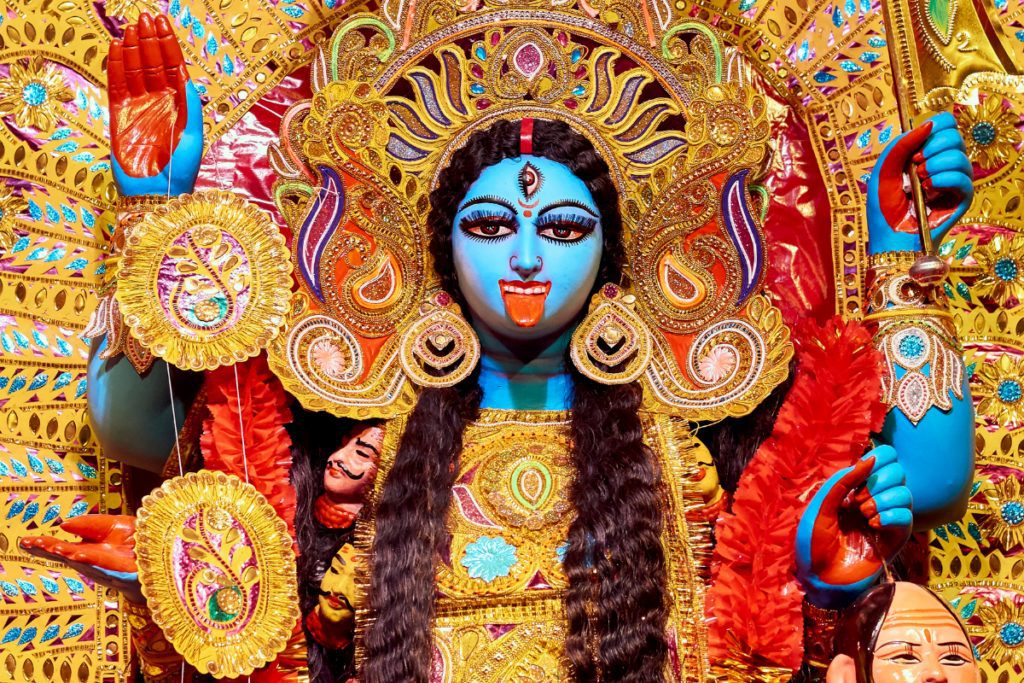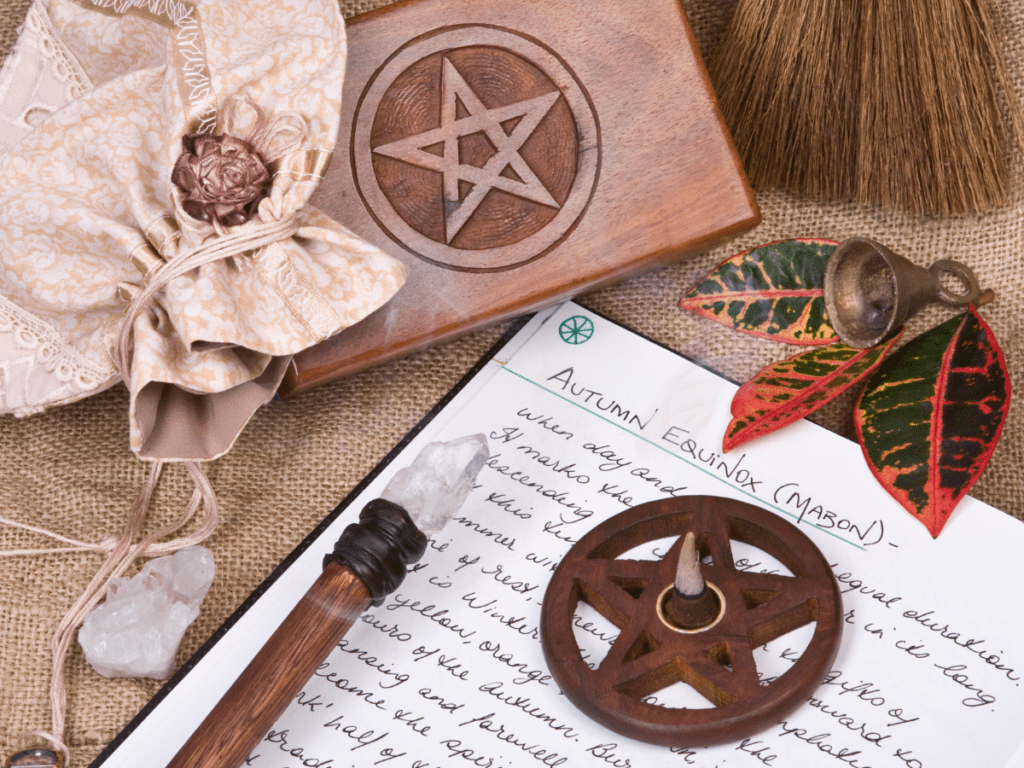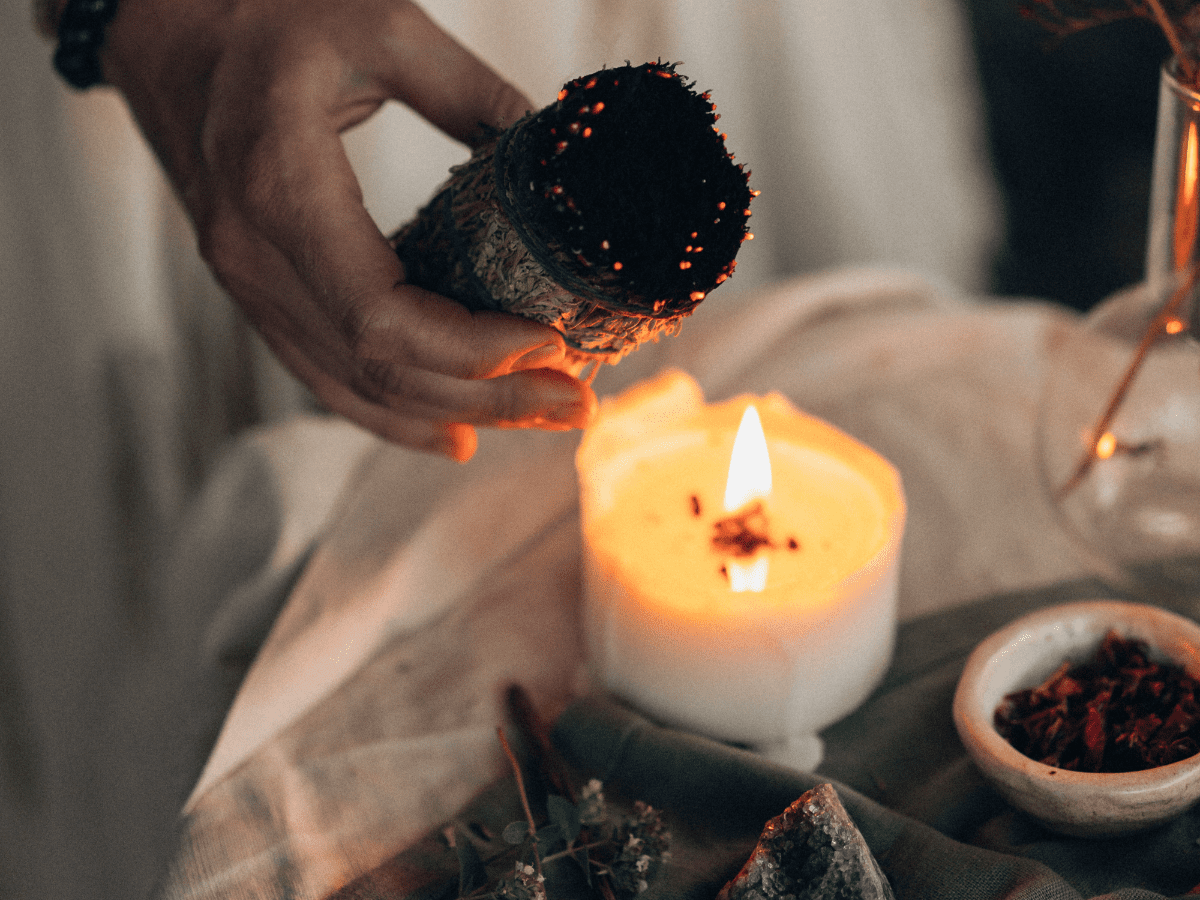YouTuber Lennan Smith posted a video titled 10 Fundamentals of Witchcraft. Smith’s video inspired fellow YouTuber Anibal of AB’s Witch Journal to create a video called Fundamentals in my Craft. Those are two different approaches to a similar subject. I’ve decided to follow Anibal’s approach because it’s a subject I’ve been thinking about a lot lately and discussing with friends. So, here are the fundamentals of my Craft: Lukumi, tantra, and Wicca.
Lukumi

I was born in Cuba and raised in the Miami neighbourhood known as Little Havana. I’m an American citizen living in Melbourne, Australia, but I first and foremost identify as Cuban. This is my DNA and my culture, a blend of indigenous, African, and Spanish influences. It manifests in my language and how I speak it, the food I enjoy, and the musical rhythms that bring me joy.
In the Afro-Cuban religion Lukumi, I am an aboricha—someone who has had some initiations but has not made ocha. Lukumi shapes how I perceive the world and informs my core values. These include the following concepts.
- “Aye loja; orun nile”, the world is a marketplace, and Orun (heaven) is home.
- We believe in reincarnation. We come to Earth with a destiny we chose and the free will to fulfil it.
- The Ori (the head) contains our divine essence, destiny, perception, personal power, and ability to communicate with the orishas.
- Iwa pele, which translates to ‘gentle character,’ and iwa rere, meaning ‘good character,’ emphasise virtues such as humility and compassion.
- A tutelar orisha, sometimes called our Guardian Angel, protects us and directs our spiritual head.
- Egun (our ancestors on whose shoulders we stand), celestial spirits, the orishas, divination, prayers, rituals, and offerings help us strengthen our ashe, align our Ori, and live in harmony with our destiny.
- We are motivated by living as well as possible for as long as possible.
Lukumi has also adopted Kardecist spiritism, which adds communication with spirits and develops mediumship skills.
Tantra

I credit the Goddess movement with influencing my current spiritual path, but it’s no longer one of the fundamentals of my Craft. Goddess spirituality is part of tantra, which has become one of the fundamentals of my Craft.
There’s no universally accepted definition of tantra, and there isn’t a single tradition. Tantra refers to ideas and techniques from different sources, including texts, meditations, visualisations, and mantras, that emerged on the Indian subcontinent around 500 BCE in Hinduism and Buddhism.
While Hinduism and Buddhism have distinct approaches to tantra, they share beliefs in karma, rebirth, and the pursuit of spiritual liberation (enlightenment) from the cycle of reincarnation. While Hinduism and Buddhism generally focus on liberation from this world, tantra emphasises the interconnectedness of all things and teaches that the path to enlightenment involves embracing both the material and spiritual.
The elements of tantra that I have adopted include:
- Viewing the universe as a manifestation of divine energy
- Accepting the material world as part of the divine while focusing on the greater goal of enlightenment
- Embracing Shaktism, the divine feminine energy, which demands a reevaluation of the status and role of women
- Recognising the centrality of ritual, particularly the evocation and worship of deities
- Engaging in visualisation and self-identification with the deity
- Utilising mantras or similar practices
- Practicing meditation and visualisation techniques
- Acknowledging the importance of the teachers in guiding spiritual growth
- Cultivating a sense of bliss as part of the spiritual journey
Wicca

Thanks to authors like Scott Cunningham and Raymond Buckland, I was already practising the popular forms of non-initiatory Wicca when I connected with my coven and later initiated into the Georgian Tradition in 2007. Wicca is the foundational structure of almost everything I do, and my version of it contains the following:
- Animism
- Shamanic practices (e.g. using trance techniques to induce an altered state of consciousness)
- Historical polytheist paganism
- Theurgy
- Folk magic and witchcraft
- Western occultism
- Ritual frameworks
- The Wheel of the Year
- Rites of passage
- The Book of Shadows
- Community
- A priesthood
This list is short, but the subjects are enormous and diverse, each with its own fundamentals. I don’t believe in practice everything this list suggests. For example, Western occultism includes Thelema, and I’m not a Thelemite, but Aleister Crowley appears to have influenced Wicca. And “historical polytheist paganism” doesn’t indicate how much the ancient Greek world influences my practices.
Continuous learning

Continuous learning is an unofficial fundamental of my spirituality.
I embrace formal education (for lack of a better word), meaning courses, workshops, programs, and mentorships. I also value personal exploration, experimentation, and self-reflection. I love discussion groups and always learn a lot from my peers.
Through continued study, reflection, and engagement with fellow practitioners, I expand my knowledge and understanding, refine my skills, and deepen my practice.
Fundamentals of my Craft
Lukumi, Tantra, and Wicca have different cultural origins, beliefs, practices, unique philosophical nuances, and diverse personal approaches. Nevertheless, they share some ideas and practices, although their explanations and applications may differ significantly. Some of the most important, or fundamental, principles and practices to me include:
- Reincarnation
- Ancestors and lineages
- Connection to deities and spirits
- Meditation and contemplative practices
- Divination and oracular practices
- Rituals and ceremonies
- Magick and spellcraft
- Ethical guidelines and spiritual values
Along with the commitment to ongoing learning and growth, these are the fundamentals of my Craft.


I love that you included continuous learning! I believe it’s important to grow in knowledge of both the world and the self. I’ve never come across Lukumi before and it was interesting to learn about some aspects of it through your post. It’s always fascinating to me learning about people’s practices, so thank you for sharing!
Learning is probably something of a given, but I don’t think everyone actively seeks it, and I do. Thank you so much for reading and commenting!